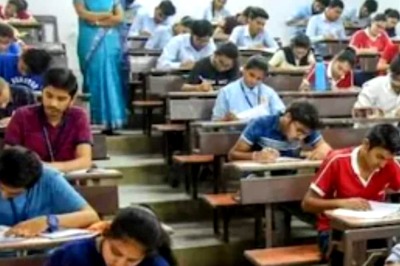
views
New Delhi: The Delhi High Court on Wednesday said that crimes against women in the national capital occur more often in a few "pockets" of the city, particularly areas which have undergone rapid urbanisation.
A bench of acting Chief Justice BD Ahmed and Justice S Mridul made the remarks after going through the crime-mapping charts and tables submitted by Delhi Police pursuant to the court's order to undertake the exercise.
"On going through the charts and accompanying table, we find the data to be quite revealing. It appears that there are certain pockets in Delhi where crimes of this nature (against women) occur more frequently than others.
"These areas should be regarded as those where immediate action, like increased policing, gender sensitisation drives, public awareness campaigns should be initiated," the bench said, adding "what is the point in having gender sensitization drive in Mandir Marg or Tilak Marg where there are no such crimes?"
The court said a "rifled approach" is needed to tackle the issue of crimes against women, particularly now when the crime-mapping data is available. "Have a rifled approach. You have these areas in sight. Increased policing in these areas can be effective. If you police, eve-teasing, molestation and rapes will go down," the bench said.
The court directed Delhi police to file a status report "indicating the measures they have taken after crime-mapping was done and measures they propose to take to bring down these crimes so that such crimes, if not completely eradicated, should be greatly reduced" and listed the matter for further hearing on May 21.
The crime-mapping exercise was undertaken by Delhi police on the orders of the court on a PIL filed by Nandita Dhar through advocate Gaurav Kumar Bansal alleging instances of eve-teasing in Delhi had increased by over 700 per cent in 2013. After perusing the charts and table submitted by Delhi Police, the bench observed crimes against women are confined to "semi-urban and semi-rural areas" of the city while Central Delhi and purely rural areas are free from instances of such offences.
"A sociologist should go there and see what the reason for such crimes occurring there is," the court said, adding there are many other urbanised villages where such crimes do not occur.
It said Delhi Police "should also carry out sociological study to understand why such crimes occur in such areas." The bench opined the reasons for such crimes in these areas could be that policing could not keep pace with the way the city's expansion "exploded" and also rapid urbanisation.
The court returned the crime-mapping data to the sealed cover. Bansal has in his plea urged that the Centre and the city government be directed to implement the guidelines laid down by the Supreme Court to prevent the commission of offences.
On February 20, while asking Delhi Police to inform it about the areas where eve-teasing occurs, the court had observed that women in the national capital "feel unsafe" and that the issue of their safety still bore a "question mark".
The court was of the view that the only way to control or prevent crimes against women was to change the "mindset" of the people. The court had also observed that "rape is an aggravated form of eve-teasing".




















Comments
0 comment